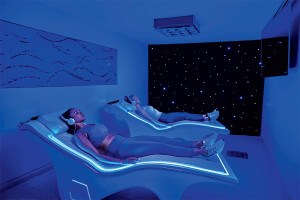New Screening Detects Heart Disease Earlier
Thomas Phiambolis, MD
Director, Cardiac CT Angiography – Main Line Health System
By age 50, most people undergo routine prostate, colon, breast and skin cancer screenings. But a simple screening for heart disease? Unfortunately, that isn’t always at the top of their preventative health care list.
It should be, though.
Heart disease is the leading cause of death among Americans—both men and women. Even more alarming: 50 percent of people initially present with heart attack or sudden death as their first symptom.
The good news is that medical advancements now allow for a more accurate picture of your heart health earlier. This early detection means people can take preventative steps to significantly reduce their risk of heart attack or stroke.
Today, physicians use tests such as the Coronary Artery Calcium Score. This test gives patients a precise picture of their heart health by identifying plaque in their coronary arteries before they become symptomatic. The test also highlights how much plaque you have, and it allows doctors to determine the short-term and lifetime risk for stroke or heart attack.
And it’s non-invasive.
How does it work? The outpatient test involves a one-time, 15-minute CT scan of your heart to look for calcium deposits in coronary arteries. This is used to determine your “score”—the higher the score, the higher your risk for heart attack. Complementing this scan is an advanced lipid panel, which is a more in-depth blood test than the routine cholesterol/triglyceride test you may have already had in the doctor’s office. Together, the tests present a more complete picture of your heart health, helping doctors develop a personalized prevention program.
So who should be tested and when? A one-time test at age 50 can help asymptomatic men and women detect heart disease. People with a family history of heart attacks before the age of 50 or those whose lifestyle puts them at increased risk (diabetes, obesity, smoking, etc.) may want to consider getting tested at a younger age.
The goal, after all, is to find this disease before it finds you.
Join Dr. Phiambolis live on Lankenau’s Wednesday Web Chat, May 15 at 7 p.m.: Using New Heart Screenings to Develop Personalized Prevention Programs. Sign up now at www.mainlinehealth.org/heartchats.
Are you Heart Smart? Take the Lankenau Heart Smart Challenge .


